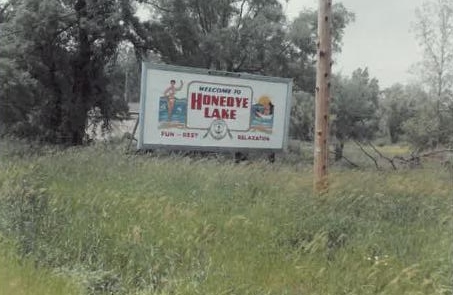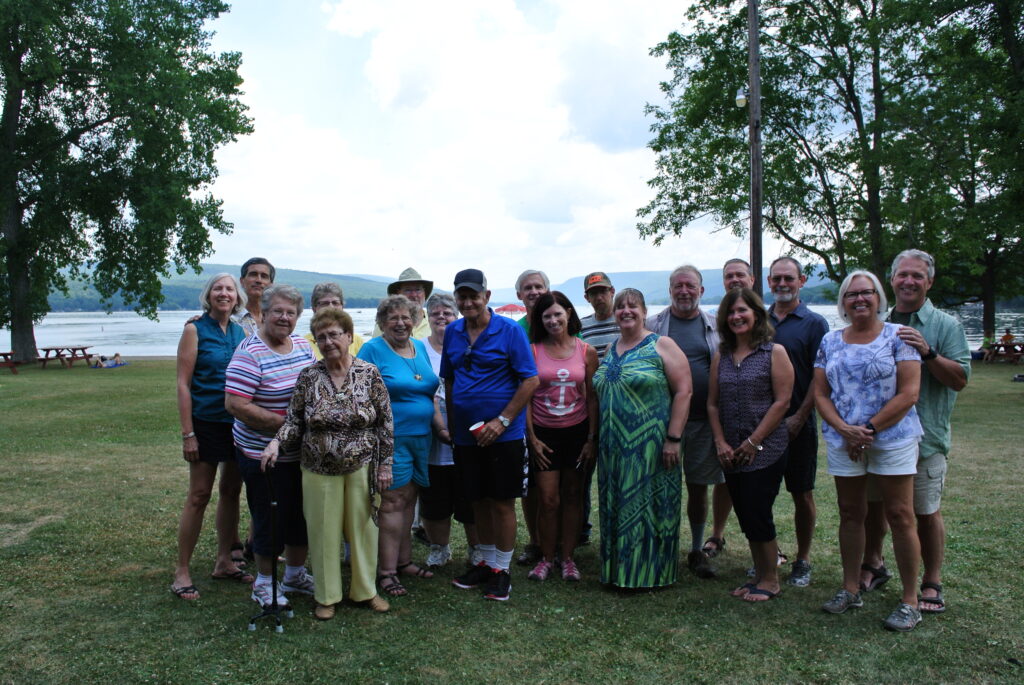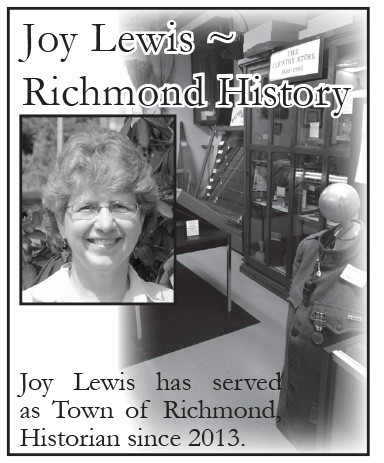Richmond History

Photo courtesy of Joy Lewis
Remembrances and Reunions at Sandy Bottom Park
- JOY LEWIS –
Did you learn to make paste from flour and water? Did you brush your teeth with baking soda? Did your mother ever threaten to “put the dingbats” to you or to “send you into the middle of next week”? If any of these are familiar to you, chances are you, like me, grew up in the ’fifties and ’sixties. In whatever era you grew up, some of your treasured memories probably include the delights of summertime.
Summer vacation, to my siblings and me, was met with jubilation and expectation. Though we were not allowed to sleep until noon, we were not awakened at the crack of dawn in order to catch the bus. Freedom. We were encouraged to read, but not compelled to write a book report. Liberty. After making our beds and cleaning up from breakfast, we were shooed outside for the day and left to make our own fun. Autonomy. Hours were devoted to riding our bikes, playing at the creek, camping in the back yard. Independence.

Two activities loom large in my memory of summer vacation — long hours lolling on the front porch reading and afternoons spent at Sandy Bottom Park. We lived in Hemlock, only a ten minute drive to the lake. Once or twice a week we made the trek over the hill, the car full of children. There were six of us – I do have a baby brother, who made seven, but he didn’t arrive until my senior year of high school — and we older ones usually had a cousin or a friend along.
Dressed only in bathing suits and sneakers, eight or nine of us kids rode in the back of the station wagon, vying for a seat at the window and arguing over towels. My mother was strict about rules of behavior at the lake, and every rule she had was for our safety. Stay with your swim buddy. Come out of the water when you get cold. No floats or water toys, ever. Though she usually sat on the blanket on shore with my younger sisters, she had her eyes on each of us in the water. Pity the kid who defied her ban on horseplay! Called out of the water in stentorian tones, the offender was pinned to the blanket for the duration. Never mind that he was not one of hers; if he was ever invited again, he’d know how to behave.
I remember the day when my brother Rob, climbing into the hot car for the ride home, remarked that the park was aptly named as he now had a very “sandy bottom.” We all did. Once arrived home, part of the routine of changing into play clothes included sweeping up the sand that spilled out of our wet suits.
For about ten years after I married, I still lived in Hemlock and in the summers I brought my little boys to Sandy Bottom Park. We left New York for North Carolina and stayed away for more than two decades. Then in 2010 my husband and I came back; we bought my father-in-law’s house in Honeoye. Three years ago, when the cousins on my dad’s side of the family wanted to have a reunion, I suggested Sandy Bottom Park.

We met one day in late June. The weather was lovely; the food was delicious and plentiful; the company was congenial. My siblings and our cousins are scattered all over the country: from western New York to California, Colorado, Pennsylvania, Maryland, North and South Carolina, Florida, Missouri, and Tennessee. At the time of the reunion I even had one cousin living in Australia. There were many who weren’t able to come, but those of us who were there had a memorable time looking at old pictures, catching up on news of far-flung family members, and bringing to mind old jokes and teases. There was that time Aunt Letha drove us into the canal.
On file in the Richmond Historian’s office are a number of reminiscences written by townsfolk from the early 1900s. But there are few such manuscripts recording the middle and later years of the century. We want your memories! Something as simple as an afternoon at the lake, or a trip to the store. What was it like at school? Do you have a story about your favorite teacher? Where did you go to church? Who mentored you at Youth Group or Sunday School? How did your family celebrate Christmas? What stories do you tell your children or grandchildren? These are what we want to record for future generations.
You can send your stories to Town of Richmond Historian, PO Box 145, Honeoye, New York, 14471 or email to historian@townofrichmond.org. Please include your full name, a phone number or email, and your date of birth. I’m looking forward to hearing from you.
